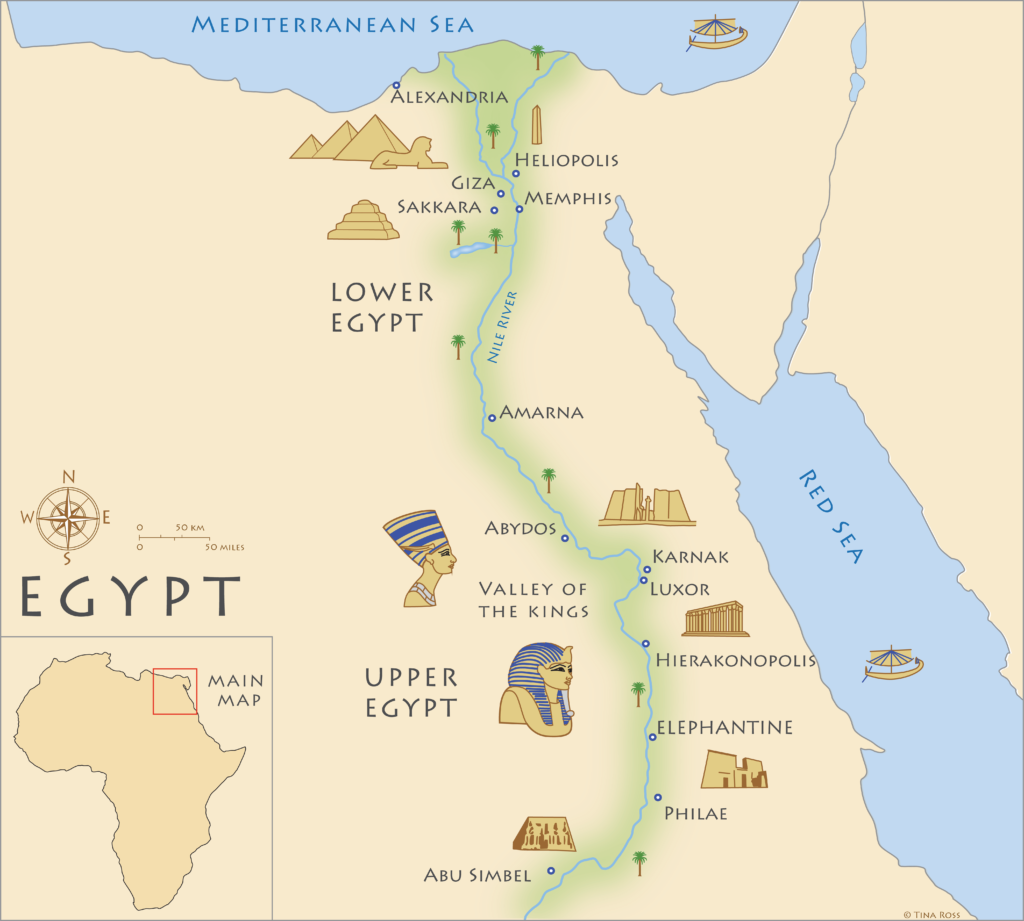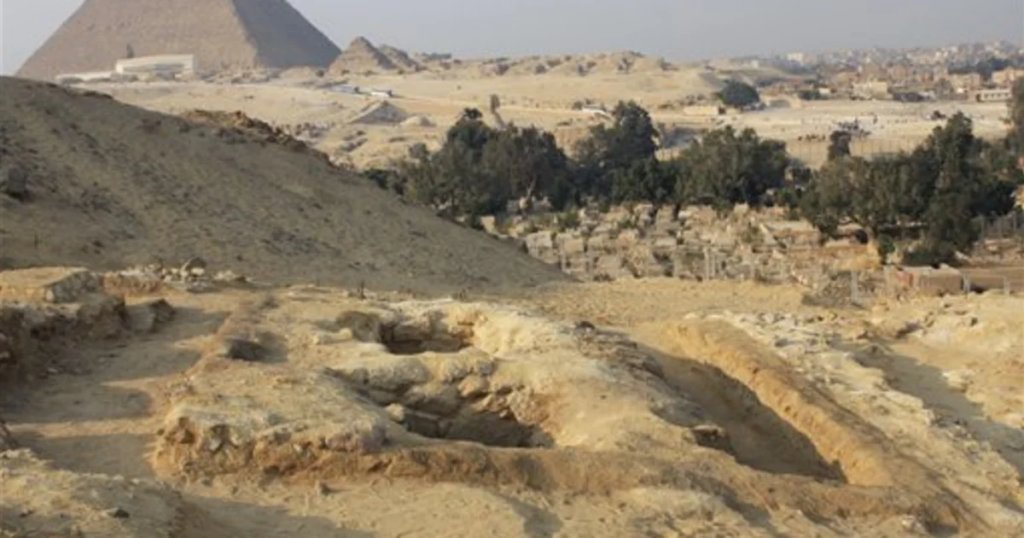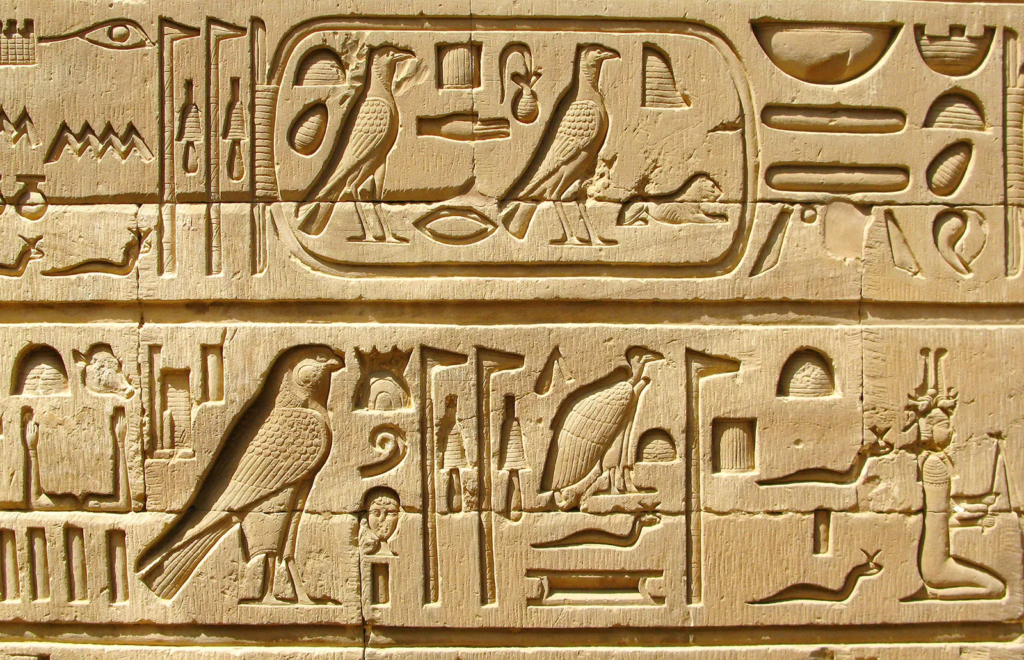Northern Africa, a region spanning countries such as Morocco, Algeria, Tunisia, Libya, and Egypt, has a rich and diverse history that has shaped the cultural and political landscape of the African continent.
Ancient Egypt
Egypt is one of the world’s oldest civilizations, emerging around 3100 BCE along the fertile banks of the Nile River. The unification of Upper and Lower Egypt marked the beginning of the Pharaonic era, characterized by the construction of monumental architecture such as the Pyramids of Giza and the Sphinx. Ancient Egyptians developed a complex society with advancements in writing (hieroglyphics), art, mathematics, and medicine. The civilization was polytheistic, with gods like Osiris and Isis playing central roles in their culture.

Ancient Egyptian Iconic Traditions
Mummification
Mummification was a crucial practice for preserving the bodies of the deceased, reflecting the belief in an afterlife. Mummies were often buried with items needed for the journey beyond, such as food, clothing, and personal belongings.

Pyramids and Tomb Construction
The construction of monumental tombs, especially the pyramids, was a significant tradition. These structures served as elaborate burial sites for pharaohs and were designed to facilitate their journey to the afterlife.

Hieroglyphics
The use of hieroglyphics, a system of writing combining logographic and alphabetic elements, was a key tradition. It was used for religious texts, official inscriptions, and monumental art, reflecting the culture’s emphasis on communication and record-keeping.

A brief historic summary of Egypt:
In 332 BCE, Alexander the Great conquered Egypt, leading to the Hellenistic Ptolemaic Kingdom, which blended Greek and Egyptian cultures. In 30 BCE, Egypt became a Roman province, maintaining agricultural productivity but facing exploitation.
The 7th century CE saw the Arab conquest, introducing Islam and Arabic. Cairo was established in 969 CE and became a cultural center. Egypt later fell under Ottoman control in the 16th century and British colonial rule in the late 19th century.
Egypt gained independence in 1922, but political instability continued. The 1952 revolution established a republic, with leaders like Gamal Abdel Nasser promoting modernization and pan-Arabism. Today, Egypt plays a significant role in the Arab world, navigating its rich heritage alongside contemporary challenges.
One response to “Northern Africa”
That’s good!